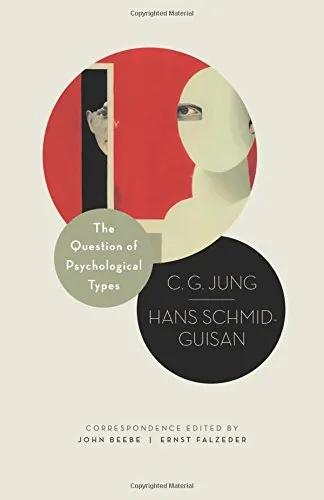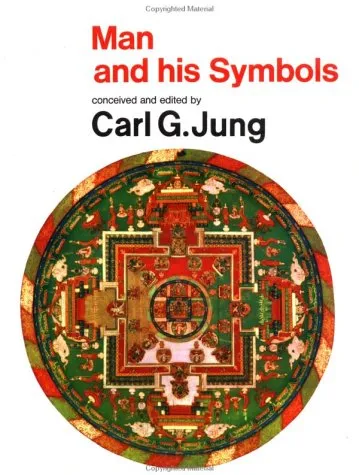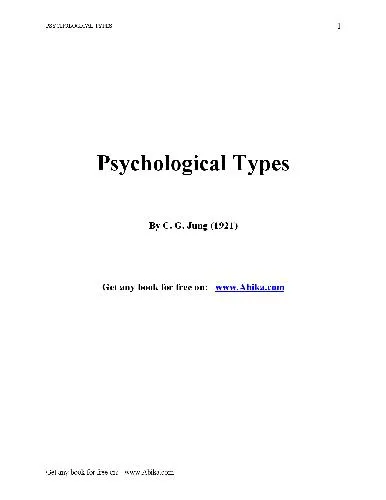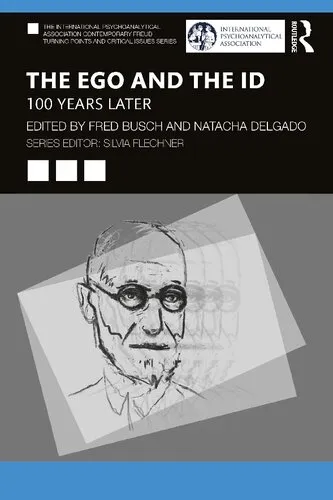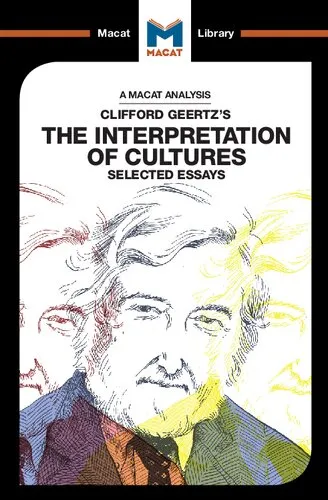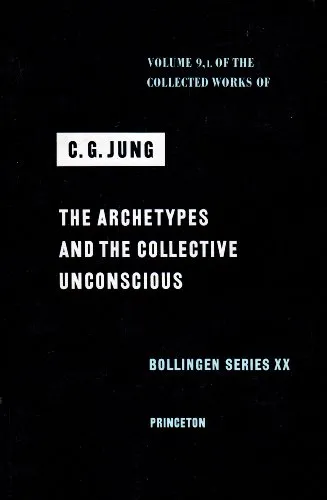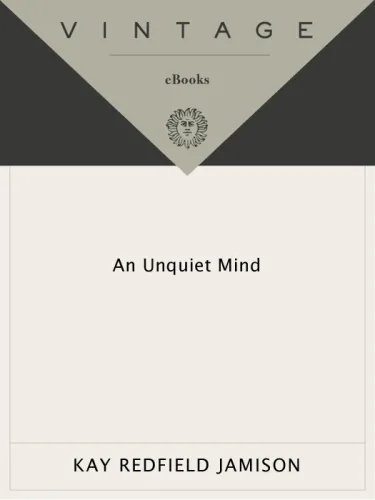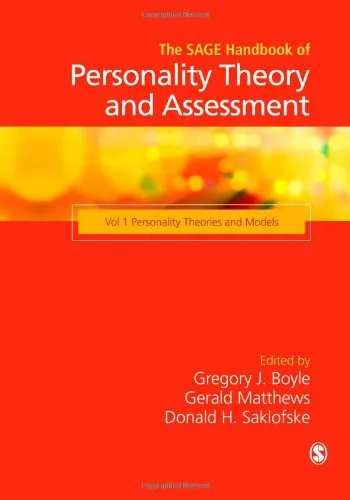The question of psychological types : the correspondence of C.G. Jung and Hans Schmid-Guisan, 1915-1916
4.5
بر اساس نظر کاربران

شما میتونید سوالاتتون در باره کتاب رو از هوش مصنوعیش بعد از ورود بپرسید
هر دانلود یا پرسش از هوش مصنوعی 2 امتیاز لازم دارد، برای بدست آوردن امتیاز رایگان، به صفحه ی راهنمای امتیازات سر بزنید و یک سری کار ارزشمند انجام بدینکتاب های مرتبط:
معرفی کتاب
کتاب "The Question of Psychological Types" به مکاتبات چارلز گوستاو یونگ و هانس اشمید-گویسین در سالهای ۱۹۱۵ تا ۱۹۱۶ میپردازد. این مکاتبات نقشی حیاتی در توسعه نظریه تیپهای روانشناختی یونگ داشتند و به فهم عمیقتر او از ساختارهای ذهنی انسان کمک کردند.
خلاصهای جامع از کتاب
این کتاب شامل نامههایی بین یونگ و اشمید-گویسین است که در آنها دو روانشناس برجسته به بررسی و تحلیل نظریههایی درباره تفاوتهای روانشناختی بین افراد میپردازند. یونگ، با بهرهگیری از تحلیل عمیقاش، به مفهومهای بنیادین همچون Introversion و Extraversion پرداخته و سعی میکند که این مفهومها را با نمونههای واقعی در زندگی ارتباط دهد. از طرفی، اشمید-گویسین نیز با دیدگاههای انتقادی و علمی خود، تلاش دارد به غنای این نظریه بیافزاید.
نکات کلیدی
- توسعه نظریه تیپهای روانشناختی و تعریف مفاهیم کلیدی مانند Introversion و Extraversion.
- نقش مکاتبات و بحثهای علمی در شکلدهی به نظریههای پیچیده روانشناسی.
- ارزش تعامل علمی و نقد و بررسی میان متخصصان.
نقلقولهای مشهوری از کتاب
«واقعیت این است که ما نمیتوانیم جهان را از دیدگاه یک نفر ببینیم، بلکه باید تلاش کنیم تا از درون نظرات دیگران نیز جهان را درک کنیم.»
«شناخت خود به عنوان پایهای برای هر گونه رشد روانشناختی است.»
چرا این کتاب مهم است؟
این کتاب از آن جهت مهم است که نه تنها به تعمیق فهم نظریات یونگ کمک میکند بلکه به نقش تعاملات علمی و مکاتبات در توسعه نظرات جدید و سنگ بنای روانشناسی مدرن میپردازد. بررسی مکاتبات و تبادل نظرهای بین یونگ و اشمید-گویسین نشاندهنده این است که چگونه دو ذهن برجسته میتوانند با همکاری یکدیگر به بهبود و توسعه دانش بشری کمک کنند. همچنین، این کتاب برای محققان و دانشجویان روانشناسی که به تاریخچه و توسعه نظریههای روانشناختی علاقهمندند، یک منبع ارزشمند و آموزنده به شمار میرود.
Introduction
The correspondence between C.G. Jung and Hans Schmid-Guisan from 1915 to 1916 represents a seminal exchange in the understanding of psychological types, delving deeply into the intricacies of human psychology and laying the groundwork for one of Jung's most influential theories. This correspondence, not just an academic dialogue, reveals the profound exploration of ideas between two eminent thinkers of the early 20th century, offering readers a unique glimpse into the development of Jungian psychology.
Detailed Summary
The book is an extensive collection of letters exchanged between Carl Gustav Jung, the Swiss psychiatrist and psychoanalyst who founded analytical psychology, and his colleague, Hans Schmid-Guisan. Over the course of a year, these two scholars embarked on an intellectual journey discussing Jung's emerging theories on psychological types, which would later form a central component of Jungian psychology and influence fields such as personality psychology and psychotherapy.
In their correspondence, Jung and Schmid-Guisan explore various psychological concepts, including introversion and extraversion, elements that later become cornerstones in Jung's classification of psychological types. Their dialogue reveals the rigorous process of scientific discourse, as they challenge each other's ideas, provide counterarguments, and refine definitions and concepts over time.
The letters offer rich insights not only into their scholarly considerations but also into their personal beliefs, struggles, and ambitions. This behind-the-scenes look at the interaction between Jung and his contemporaries illustrates the dynamic and ever-evolving nature of psychological science and captures a pivotal moment in the history of psychology.
Key Takeaways
- The Birth of Psychological Typology: Learn how Jung's theories on psychological types evolved through rigorous academic exchanges with his peers.
- Introversion and Extraversion: Discover how these foundational concepts were debated, defined, and polished over time, becoming essential tools in understanding human personality.
- Theoretical Development: Witness the intellectual process of theory formation and the collaborative efforts that shaped modern psychology.
- Personal Insights: Gain an understanding of the personalities and motivations of two significant figures in psychology.
Famous Quotes from the Book
"Every advance in culture must be made at the cost of considerable losses."
"The demands of most people are limited to the need to adapt themselves smoothly and advantageously to the ever-changing daily situations."
Why This Book Matters
The correspondence between Jung and Schmid-Guisan is of profound historical and educational value. It illustrates the depth of analysis and inquiry necessary to develop theories that can transform understanding in a field as complex as psychology. Their letters provide a firsthand account of the thought processes behind Jung's seminal work, "Psychological Types," which continues to influence countless psychological assessments and personal development tools used today, such as the Myers-Briggs Type Indicator (MBTI).
Moreover, this book is not merely about the scientific exploration of human psychology; it is a testament to the collaborative nature of intellectual progress. It highlights the effectiveness of dialogue in refining ideas and presents a model for how modern scholars can engage with complex theoretical concepts through thoughtful discourse.
The writings serve as both historical documents and inspirational texts, offering insights that remain relevant in contemporary discussions about personality, identity, and the human condition.
دانلود رایگان مستقیم
شما میتونید سوالاتتون در باره کتاب رو از هوش مصنوعیش بعد از ورود بپرسید
دسترسی به کتابها از طریق پلتفرمهای قانونی و کتابخانههای عمومی نه تنها از حقوق نویسندگان و ناشران حمایت میکند، بلکه به پایداری فرهنگ کتابخوانی نیز کمک میرساند. پیش از دانلود، لحظهای به بررسی این گزینهها فکر کنید.
این کتاب رو در پلتفرم های دیگه ببینید
WorldCat به شما کمک میکنه تا کتاب ها رو در کتابخانه های سراسر دنیا پیدا کنید
امتیازها، نظرات تخصصی و صحبت ها درباره کتاب را در Goodreads ببینید
کتابهای کمیاب یا دست دوم را در AbeBooks پیدا کنید و بخرید
1380
بازدید4.5
امتیاز0
نظر98%
رضایتنظرات:
4.5
بر اساس 0 نظر کاربران
Questions & Answers
Ask questions about this book or help others by answering
No questions yet. Be the first to ask!
